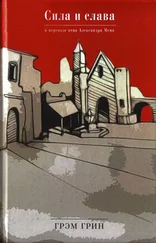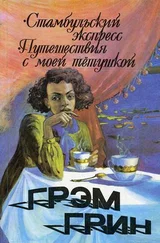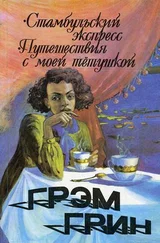Грэм Грин - The Comedians
Здесь есть возможность читать онлайн «Грэм Грин - The Comedians» весь текст электронной книги совершенно бесплатно (целиком полную версию без сокращений). В некоторых случаях можно слушать аудио, скачать через торрент в формате fb2 и присутствует краткое содержание. Год выпуска: 1966, Жанр: Классическая проза, на английском языке. Описание произведения, (предисловие) а так же отзывы посетителей доступны на портале библиотеки ЛибКат.
- Название:The Comedians
- Автор:
- Жанр:
- Год:1966
- ISBN:нет данных
- Рейтинг книги:3 / 5. Голосов: 1
-
Избранное:Добавить в избранное
- Отзывы:
-
Ваша оценка:
- 60
- 1
- 2
- 3
- 4
- 5
The Comedians: краткое содержание, описание и аннотация
Предлагаем к чтению аннотацию, описание, краткое содержание или предисловие (зависит от того, что написал сам автор книги «The Comedians»). Если вы не нашли необходимую информацию о книге — напишите в комментариях, мы постараемся отыскать её.
The Comedians — читать онлайн бесплатно полную книгу (весь текст) целиком
Ниже представлен текст книги, разбитый по страницам. Система сохранения места последней прочитанной страницы, позволяет с удобством читать онлайн бесплатно книгу «The Comedians», без необходимости каждый раз заново искать на чём Вы остановились. Поставьте закладку, и сможете в любой момент перейти на страницу, на которой закончили чтение.
Интервал:
Закладка:
'Then we can rely on you to have a word with your colleague? What I would suggest is that Mr Smith should leave with you a little compensation — in dollars, of course, not gourdes — for any damage Mr Jones may have inflicted on a policeman.'
'I will do what I can. So long as the President is not involved. In that case there is nothing that any of us can do.'
'No.'
Above his head hung the portrait of Papa Doc — the portrait of Baron Samedi. Clothed in the heavy black tail-suit of graveyards he peered out at us through the thick lenses of his spectacles with myopic and expressionless eyes. He was rumoured sometimes to watch personally the slow death of a Tonton victim. The eyes would not change. Presumably his interest in the death was medical.
'Give me two hundred dollars,' I said to Mr Smith. He picked out two hundred-dollar notes from his case. In the other pocket I saw that he had a photograph of his wife wrapped in her rug. I laid the notes on the Minister's desk; I thought he looked at them with an air of disparagement, but I couldn't believe that Mr Jones was worth much more than that. At the door I turned, 'And Doctor Philipot,' I asked, 'is he here at the moment? There was something about the hotel I wanted to discuss with him — a drainage plan.'
'I believe that he is in the south at Aux Cayes about a new hospital project.' Haiti was a great country for projects. Projects always mean money to the projectors so long as they are not begun.
'We'll hear from you then?'
'Of course. Of course. But I promise nothing.' He was now a little brusque. I have often noticed that a bribe (though, of course, this was not, strictly speaking, a bribe) has that effect — it changes a relation. The man who offers a bribe gives away a little of his own importance; the bribe once accepted, he becomes the inferior, like a man who has paid for a woman. Perhaps I had made a mistake. Perhaps I should have left Mr Smith as an undefined menace. The blackmailer retains his superiority.
4
All the same the Minister proved himself to be a man of his word; we were allowed in due course to see the prisoner.
At the police station the next afternoon the sergeant was the most important figure, far more important than the Minister's secretary who accompanied us there. He tried in vain to catch the eye of the great man, but he had to wait his turn at the counter with all the other suppliants. Mr Smith and I sat under the snapshots of the dead rebel which were still wilting on the wall after all these months. Mr Smith looked at them and hastily looked away. In a little room opposite us sat a tall negro in a natty civilian suit; he had his feet up on his desk and he stared at us continually through dark glasses. Perhaps it was only my nerves that lent him an expression of repulsive cruelty.
'He'll remember us again,' Mr Smith said with a smile.
The man knew that we had spoken of him. He rang a bell on his desk and a policeman came. Without moving his feet or turning his gaze away from us he asked a question, and the policeman glanced at us and replied and the long stare went on. I turned my head, but inevitably after a little while I looked back into the two black circular lenses. They were like binoculars through which he was observing the habits of two insignificant animals.
'An ugly customer,' I said uneasily. Then I noticed that Mr Smith was returning the stare. One couldn't see how often the man blinked because of the dark glasses; he might easily have closed his eyes and rested them and we would not have known, yet it was Mr Smith's blue relentless gaze which won the day. The man got up and closed the door of his office. 'Bravo,' I said.
'I shall remember him too,' Mr Smith said.
'He probably suffers from acidity.'
'It's highly possible, Mr Brown.'
We must have been there more than half an hour before the Foreign Minister's secretary got any attention. In a dictatorship ministers come and go; in Port-au-Prince only the chief of police, the head of the Tontons Macoute and the commander of the palace guard had any permanence — they alone could offer security to their employees. The Minister's secretary was dismissed by the sergeant like a small boy who has run an errand and a corporal led us down the long corridor of cells that smelt like a zoo.
Jones sat on an upturned bucket beside a straw mattress. His face was criss-crossed with pieces of plaster and his right arm was bandaged to his side. He had been tidied up as well as could be, but his left eye could have done with a raw steak. His double-breasted waistcoat looked more conspicuous than ever with a small rusty stain of blood. 'Well, well,' he greeted us with a happy smile, 'look who's here.'
'You seem to have been resisting arrest,' I said.
'That's their story,' he said brightly. 'Got a cigarette?'
I gave him one.
'You haven't a filter tip?
'No.'
'Ah well, mustn't look a gift-horse … I felt this morning things had taken a turn for the better. They gave me some beans at midday, and a doctor chap came and worked on me.'
'What are you charged with?' Mr Smith asked.
'Charged?' He seemed as puzzled at the word as the Foreign Secretary had been.
'What do they say you've done, Mr Jones?'
'I haven't had much of an opportunity to do anything. I didn't even get through the customs.'
'There must be some reason? A mistaken identity perhaps?'
'They haven't explained things very clearly to me yet.' He touched his eye with caution. 'I look a bit the worse for wear, I expect.'
'Is that all you have for a bed?' Mr Smith asked with indignation.
'I've slept in worse places.'
'Where? It's hard to imagine …'
He said vaguely and unconvincingly, 'Oh, in the war, you know.' He added, 'I think the trouble is I had the wrong introduction. I know you warned me, but I thought you were exaggerating — like the purser.'
'Where did you get your introduction?' I asked.
'Someone I met in Leopoldville.'
'What were you doing in Leopoldville?'
'It was more than a year ago. I do a lot of travelling.' I had the impression that to him the cell was unremarkable, like one of the innumerable airports on a long route.
'We've got to get you out of here,' Mr Smith said. 'Mr Brown has told your chargй. We've both seen the Secretary of State. We've stood bail.'
'Bail?' He had a better sense of reality than Mr Smith. He said, 'I tell you what you can do for me, if you wouldn't mind. Of course I'll pay you back later. Give twenty dollars to the sergeants as you go out.'
'Of course,' Mr Smith said, 'if you think it will do any good.'
'Oh, it will do good all right. There's another thing — I have to get that business of the introduction straight. Have you a bit of paper and a pen?'
Mr Smith provided them and Jones began to write. 'You haven't an envelope?'
'I'm afraid not.'
'Then I'd better phrase it a bit differently.' He hesitated a moment and then he asked me, 'What's the French for factory?'
'Usine?'
'I was never very good at languages, but I've picked up a bit of French.'
'In Leopoldville?'
'Give that to the sergeant and ask him to pass it on.'
'Can he read?'
'I think so.' He stood up as he returned the pen and said in the polite tone of dismissal, 'It was good of you chaps to call.'
'You've got another appointment?' I asked him ironically.
'To tell you the truth those beans are beginning to work. I've an appointment with the bucket. If either of you can spare a little more paper …'
We collected between us three old envelopes, a receipted bill, a page or two from Mr Smith's engagement book, and a letter to me, which I thought I had destroyed, from a New York real-estate agent regretting that at the moment he had no clients interested in the purchase of hotel properties in Port-au-Prince.
Читать дальшеИнтервал:
Закладка:
Похожие книги на «The Comedians»
Представляем Вашему вниманию похожие книги на «The Comedians» списком для выбора. Мы отобрали схожую по названию и смыслу литературу в надежде предоставить читателям больше вариантов отыскать новые, интересные, ещё непрочитанные произведения.
Обсуждение, отзывы о книге «The Comedians» и просто собственные мнения читателей. Оставьте ваши комментарии, напишите, что Вы думаете о произведении, его смысле или главных героях. Укажите что конкретно понравилось, а что нет, и почему Вы так считаете.



